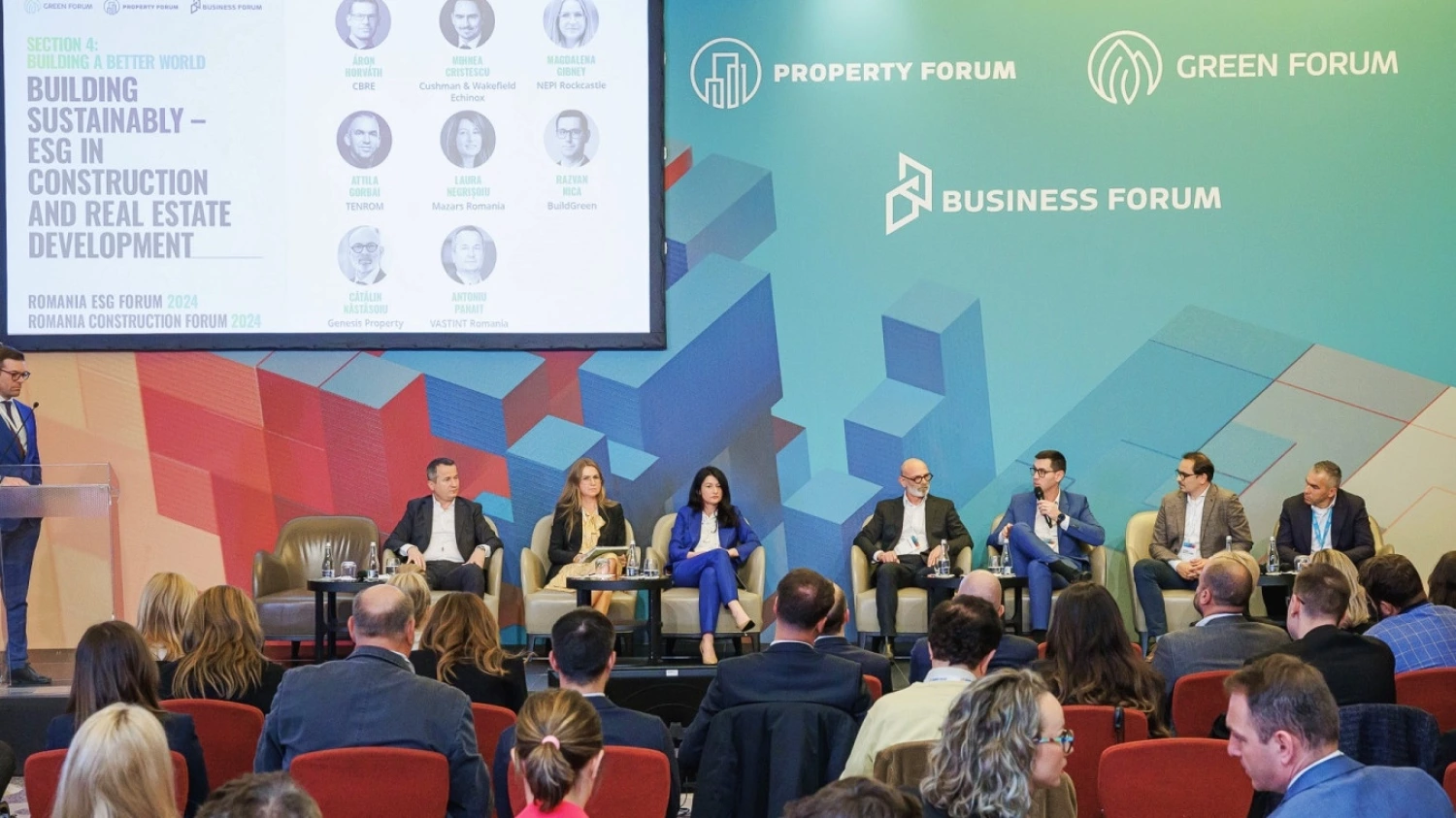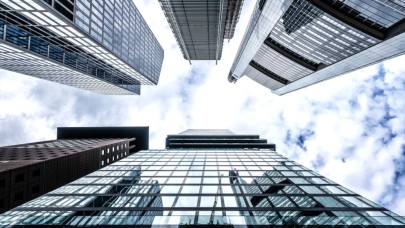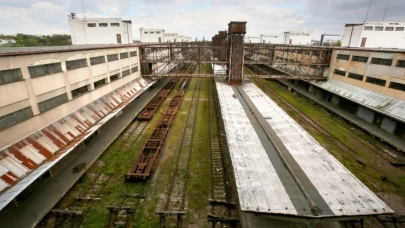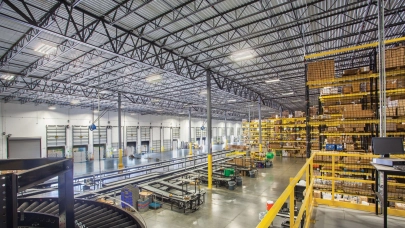
Banks are starting to ask from the first stage about the sustainability targets of real estate projects, while EU rules are shaping the reporting framework, concluded speakers of the construction and property development panel of Property Forum’s Romania ESG Forum held in Bucharest.
Áron Horváth, Head of ESG CEE, CBRE said the legal framework is pushing ESG onto companies, while being aware of environment and governance will make businesses more resilient and impactful.
We need to talk about carbon budgets similar to financial budgets, which means that the carbon component has to be measured, according to Mihnea Cristescu, Project Manager & Sustainability Consultant, Cushman & Wakefield Echinox. Speaking about Romania, he explained that the law regulating buildings also includes two requirements on sustainability - energy efficiency and sustainable use of materials.
NEPI Rockcastle is already generating 30% of its energy from renewable sources in Romania, directly from the photovoltaic panels installed on its commercial projects, said Magdalena Gibney, Group Head of Sustainability, NEPI Rockcastle. She added that the group has embedded AI into its BMS systems of projects to improve the consumption metering of various resources.
Attila Gorbai, Managing Director, TENROM mentioned that the company has refurbished more than 2,000 cleaning machines in the last 12 years, which supports its sustainable operations. Gorbai suggested that tenders for commercial projects should have a specific objective regarding sustainable cleaning.
Banks have been requesting the development of products around the EU Taxonomy in a bid to finance companies, explained Laura Negrișoiu, Sustainability Director, Mazars Romania. She added that through the Corporate Sustainability Reporting Directive (CSRD), companies have to bring non-financial information to the level of financial information, thus bringing more trust in the data included in the sustainability report.
The Energy Performance of Buildings Directive (EPBD) is mandatory for nZEB compliance, just like the EU Taxonomy, which pushes the performance of buildings much more, stated Razvan Nica, Managing Director, BuildGreen. According to Nica, the EU Taxonomy is a key piece of legislation for the financing of green projects.
Cătălin Năstăsoiu, VP, Marketing Strategy, Genesis Property, outlined the sustainability elements of the company’s YUNITY Park project in northern Bucharest. The complex includes photovoltaic panels and an urban forest, which led to a reduction of carbon emissions by 410 tonnes. Right from the start, the developer thought of the social impact of the project. For instance, the former parking lot of the complex was transformed into green spaces.
The new phase of Timpuri Noi Square office project in Bucharest will use no fossil fuels to operate, said Antoniu Panait, Managing Director, VASTINT Romania. He added that VASTINT had sustainability in mind since the start of operations. For instance, the company buys only green energy for its local projects and uses heat pumps as part of its sustainability objectives.



